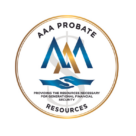
For many families, passing down the family home is one of the most meaningful parts of estate planning. One common question we hear is:
“Should I just add my child to the deed now to avoid probate later?”
At first glance, it might seem like a smart, simple move. But the truth is, adding someone to your deed—especially a child—can have long-term legal and financial consequences that most people don’t see coming.
Let’s explore the pros, cons, and risks so you can make an informed decision.
What Does It Mean to Add a Child to Your Deed?
When you “add” someone to your deed, you’re changing ownership of your property to include them as a co-owner. This is usually done through a quitclaim deed or warranty deed, and it means your child would legally own a portion of your home right now—not just after you pass away.
Potential Benefits
✅ 1. Avoiding Probate
This is often the biggest motivator. If your child is on the deed as a joint tenant with rights of survivorship, your home may pass directly to them upon your death, bypassing probate.
✅ 2. Immediate Access
If something happens to you, your child could legally manage, refinance, or sell the property without waiting on court approval.
The Hidden Risks
While those benefits are real, they come with serious trade-offs—some of which can jeopardize your home, your finances, or even your family relationships.
⚠️ 1. Loss of Control
Once your child is on the deed, you can’t sell, refinance, or transfer the home without their written consent. Even if circumstances change.
⚠️ 2. Exposure to Your Child’s Debts
If your child is sued, goes through a divorce, or files for bankruptcy, their share of the home can be at risk. Creditors could place liens on the property.
⚠️ 3. Tax Consequences
Adding your child as a co-owner may trigger gift taxes, and when they sell the home in the future, they could lose out on valuable tax exclusions that would’ve applied had they inherited it instead.
A Better Alternative?
If your goal is to ensure your child receives the home without probate, there may be safer and more strategic options, such as:
- Creating a revocable living trust
- Using a Transfer on Death (TOD) deed, if allowed in your state (note: Georgia does not currently recognize TOD deeds, but trusts are a strong option)
- Clearly stating your wishes in a will and planning ahead with legal guidance
These tools can protect your home, avoid probate, and reduce risk—all without sacrificing control or putting your family in a difficult position.
Real Talk: Don’t DIY Your Legacy
It might seem easier to just sign the deed over and be done with it, but quick fixes often lead to costly problems down the line.
That’s why we always recommend working with a professional who understands both real estate and estate planning law. Your home is likely your most valuable asset—so treat it that way.
Featured Video: Can You Afford to Keep the Home?
Want to learn how decisions like these can impact your family later?
In this episode of our Probate Real Estate Series, Ashley dives into the emotional, financial, and mental weight of inherited property. In this episode, we’re facing the harder truth: what happens when the desire to honor a legacy clashes with real-life limitations?
Learn how inherited homes can create pressure within families, burden entire communities, and ultimately lead to painful losses if not handled with care.
We’re talking more than just money—we’re talking legacy, responsibility, and the impact on future generations.
Want to Avoid the Drama Altogether?
If you’re feeling overwhelmed, don’t worry—we’re here to help. Book a free 20-minute call with Ashley to get personalized advice on your situation.
Let’s work together to create a plan that ensures your family’s future is secure and stress-free.
Stay Connected
For more tips on estate planning, follow us on Instagram where we regularly share valuable insights and resources.
